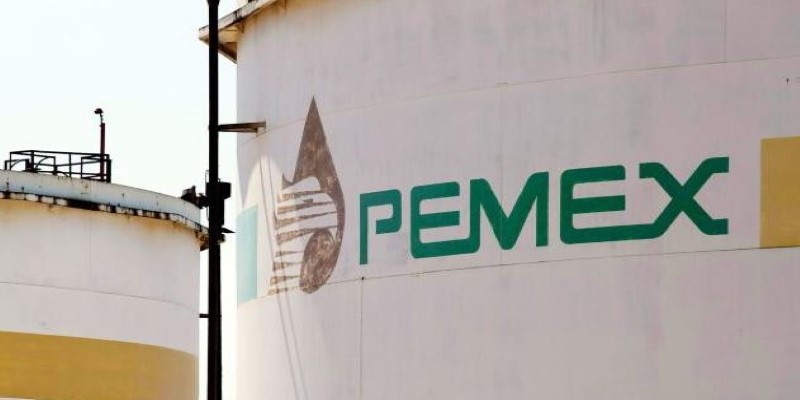Deepening Losses at Pemex Pose Challenges for New CEO Rodriguez
Nov 15, 2024 By Triston Martin
Pemex, Mexicos state-owned oil company, has seen its financial woes worsen, sending ripples of concern across the Mexican energy sector. This year, Pemexs losses have deepened, marking an increasingly turbulent period as Octavio Romeros successor, the newly appointed CEO Rodriguez, assumes the reins.
With its balance sheet continuing to deteriorate, the firm is asking more difficult questions about Pemex's future and the policies that Rodriguez might adopt to stabilize the ailing oil giant. Since operations support an economy heavy with debt, it is challenging to stay on the current path that characterizes Pemex's new leadership.
Challenges Facing Pemex: Financial Burdens and Operational Hurdles
Pemex has been burdened with chronic financial troubles, which are further exacerbated by increasing debts, old infrastructure, and a global trend toward alternative energy sources. These factors have combined to make the company's situation worse, with its debt now exceeding $110 billion, the largest held by any oil company in the world. Pemex finds itself in a weak position, as it not only has to increase profitability but also handle and reduce debt so investors regain confidence in the firm.
Another major issue is the company's operational inefficiency. Ageing infrastructure, such as obsolete refineries, usually deters productivity and raises operational costs for Pemex. Modernization, though underway, requires large capital inputs, which Pemex does not currently have. When Rodriguez assumes the role of CEO, he will be confronted with all these legacy issues that will demand concentrated effort and strategic investments in order to change Pemex's infrastructure if the company is to boost its output and reduce its production costs.
Market and Policy Pressures: Oil Prices and Government Expectations
Pemex's problems are not confined to internal problems; the external market and government expectations also take their toll on the company. Oil price fluctuations bring ups and downs in revenues. When global oil prices temporarily come back to help the firm boost revenues, it seems the very long term is looking negative because the drift towards renewable energies is taking place around the world. This would further weaken Pemex's market share going forward, especially with overseas competitors turning greener in their business practices.

Another significant factor affecting Pemex is the policies of the Mexican government. The current administration regards Pemex as a national gem, and there is great political interest in its prosperity. However, this usually translates to the government interfering with the management of the company, which complicates making proper decisions. Politically, Rodriguez's management of Pemex might be limited by the need to preserve the employment base and nationalistic policy at the expense of proper business operations. The most significant challenge the new CEO will face is probably the balance of the expectations made by the government with the need for fiscal discipline.
Strategic Path Forward: Key Areas for Rodriguez to Tackle
Facing steep financial and operational challenges, CEO Rodriguez must focus on operational upgrades, debt management, and diversifying energy resources to stabilize Pemex and secure its long-term sustainability.
Operational Efficiency: Modernizing Infrastructure
Pemex's ageing facilities hinder productivity and inflate costs. Rodriguez's focus on modernizing equipment, streamlining refinery processes, and incorporating advanced monitoring could boost efficiency and lower expenses. This overhaul will require substantial investment, but it's critical to enhance Pemex's output and position it competitively within the global market. Operational updates can help Pemex align with rising energy standards while reducing costly downtime.
Debt Restructuring and Financial Discipline
Pemexs $110 billion debt looms large, limiting flexibility and threatening its credit rating. Rodriguez must devise a disciplined financial plan to manage, refinance, or restructure this debt. Government-backed support could help, but Rodriguez needs to strike a balance, aligning Pemexs financial practices with market expectations. Clear debt management would restore investor confidence, paving the way for potential partnerships and investment.
Exploring Renewable Energy: A Long-Term Vision

As global energy demands shift, Pemex can benefit from diversifying into renewables. Although costly initially, investing in natural gas, wind, or solar projects could secure Pemexs future relevance. This shift aligns with environmental standards, appeals to sustainable-minded investors, and helps offset oil price volatility. Gradual diversification allows Pemex to stay competitive while preparing for a clean energy future in Mexico.
Government Support and Public Expectations: A Double-Edged Sword
Pemex's ties to the Mexican government offer both crucial support and major challenges. As a state-owned entity, Pemex benefits from government backing and public loyalty, but this also brings significant expectations that don't always match the company's financial priorities. Politically, Pemex is seen as an emblem of national pride, leading the government to favour policies that prioritize employment and fuel affordability. This often restricts Pemex from making necessary cost-cutting measures or restructuring, as such decisions can trigger public opposition and political backlash.
Rodriguez, Pemexs new CEO, finds himself navigating this tricky dynamic. While he might recognize the need for structural changes to address Pemexs deepening losses, he must balance these financial needs against the expectations set by both the government and the public. This balancing act becomes even more complex considering the governments insistence on Pemexs role in energy independence and national employment.
If Rodriguez can find a way to reconcile these expectations with Pemexs fiscal realities, he may set the company on a more sustainable path. However, achieving this requires deft leadership and strategic vision, especially as Mexicos oil industry contends with shifting global energy trends and ongoing financial challenges.
Conclusion
Pemexs deepening losses signal a difficult road ahead for its new CEO, Rodriguez. The combination of financial burdens, operational challenges, and external pressures will require a bold and well-structured approach. Rodriguezs leadership will be tested as he attempts to navigate these complexities and secure a viable future for Pemex. A strategic focus on reducing debt, improving efficiency, and possibly exploring cleaner energy initiatives could help steer Pemex towards a more stable and sustainable trajectory. For Rodriguez, addressing these core issues will be critical, as Pemexs success has significant implications for Mexicos economy and energy independence.

Dec 15, 2023 Triston Martin

Jan 14, 2024 Triston Martin

Dec 04, 2023 Triston Martin

Dec 09, 2023 Triston Martin

Dec 17, 2023 Triston Martin

Nov 25, 2023 Susan Kelly